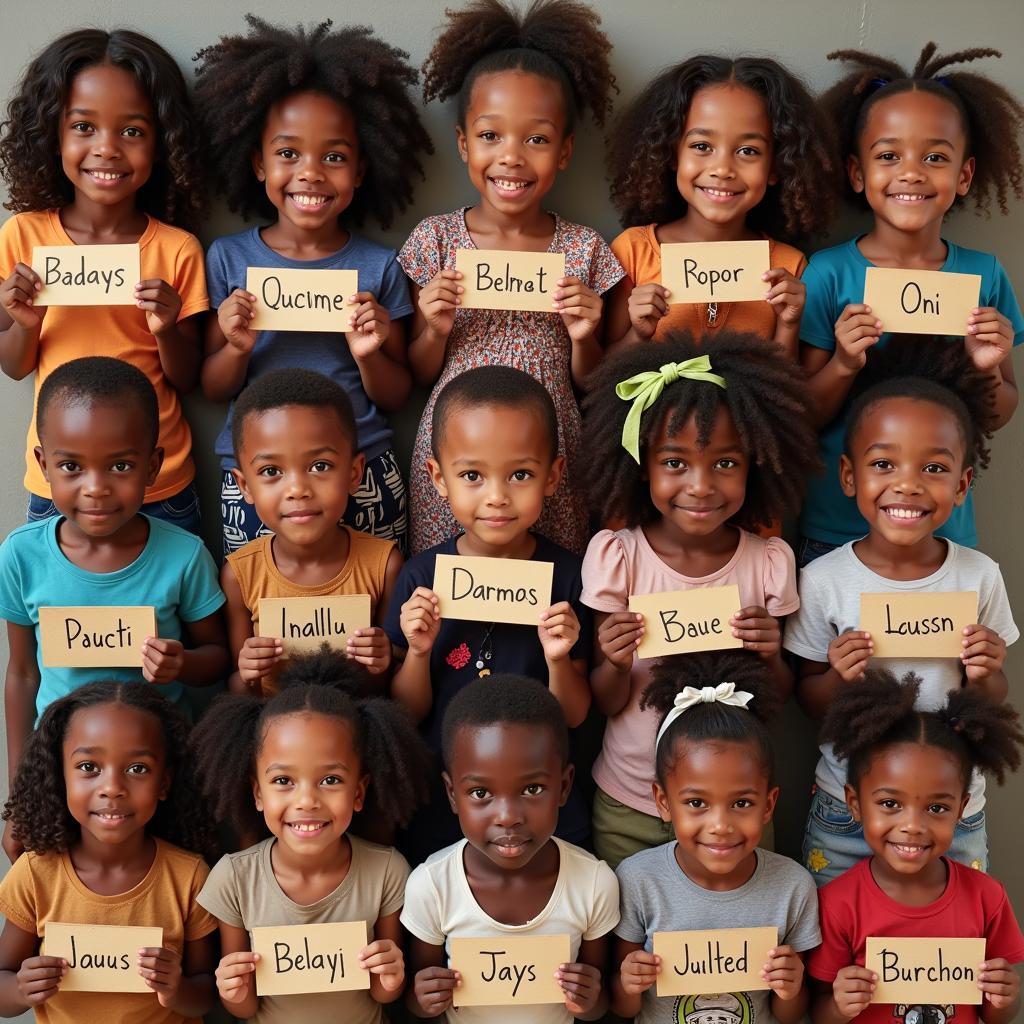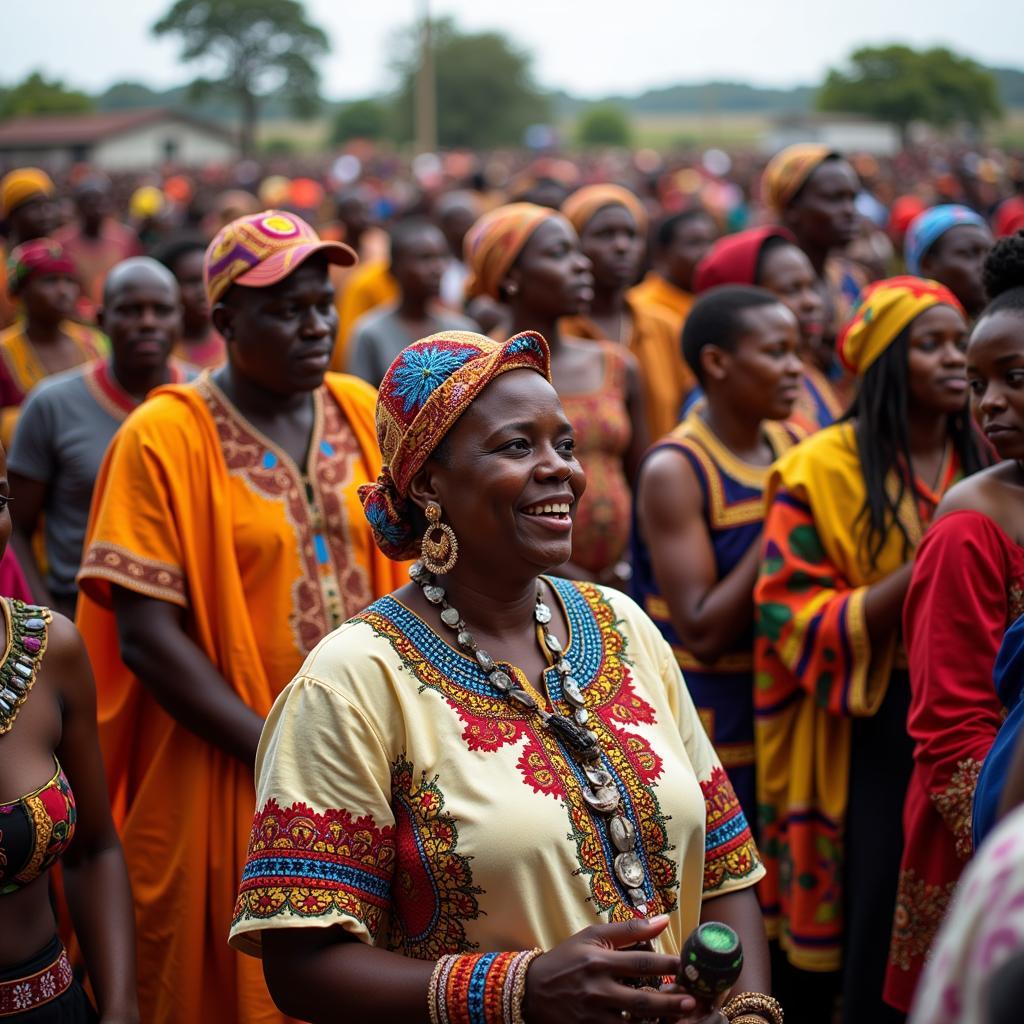African Gandhi: Exploring Nelson Mandela’s Legacy of Peaceful Resistance
Nelson Mandela, often hailed as the “African Gandhi,” stands as a towering figure in the fight against apartheid in South Africa. His unwavering commitment to peaceful resistance and reconciliation earned him global admiration and cemented his place as a true icon of the 20th century. This article delves into the parallels between Mandela and Mahatma Gandhi, examining their philosophies, strategies, and enduring impact on the world.
The Philosophy of Peaceful Resistance: Mandela and Gandhi’s Shared Vision
Both Mandela and Gandhi embraced the philosophy of Satyagraha, a Sanskrit term meaning “truth force” or “soul force.” This philosophy emphasizes non-violent resistance as a powerful tool for social change. For Gandhi, it was the cornerstone of India’s struggle for independence from British rule. Decades later, Mandela adopted and adapted these principles to combat the oppressive apartheid regime in South Africa. He recognized the transformative power of peaceful resistance, even in the face of brutal repression.
Inspired by Gandhi’s success, Mandela saw non-violence not as passivity but as an active and courageous form of struggle. He understood that resorting to violence would only perpetuate the cycle of hatred and oppression. This shared belief in the power of love and truth formed the bedrock of their movements.
After a period of armed resistance, Mandela shifted his focus to peaceful protests, boycotts, and civil disobedience. This strategic move, inspired by Gandhi’s teachings, helped to garner international support and put immense pressure on the apartheid government.
You might wonder, what were the key elements of their shared philosophy? The answer lies in their unwavering belief in the inherent dignity of all human beings, the rejection of injustice and oppression, and the commitment to achieving change through peaceful means.
The Strategic Use of Non-Violence: Lessons from Gandhi Applied in South Africa
Mandela drew inspiration from Gandhi’s successful campaigns in India. He studied Gandhi’s writings and tactics, adapting them to the specific context of South Africa. Like Gandhi, Mandela understood the importance of mobilizing the masses and building a broad-based movement. He also recognized the power of international pressure in isolating and weakening the apartheid regime.
Mandela’s leadership of the African National Congress (ANC) was instrumental in organizing mass protests and boycotts. These non-violent actions, though often met with violent repression, gradually eroded the foundations of apartheid. The international community, inspired by Mandela’s commitment to peaceful resistance, increasingly condemned the South African government’s policies. This growing international pressure played a crucial role in the eventual dismantling of apartheid. Learn more about African American morning quotes for daily inspiration.
One crucial difference between the two leaders, however, was their approach to negotiation. While Gandhi generally favored negotiation throughout the struggle, Mandela initially focused on non-violent resistance before eventually engaging in negotiations with the government. This shift in strategy reflected the unique challenges and complexities of the South African context.
The Enduring Legacy of the “African Gandhi”: Mandela’s Impact on the World
Nelson Mandela’s legacy extends far beyond the dismantling of apartheid. His unwavering commitment to peace and reconciliation has inspired generations of activists and leaders around the world. He is remembered not only for his fight against injustice but also for his remarkable capacity for forgiveness and his vision of a united and democratic South Africa. Check out more about African American quotes about success. Mandela’s journey from political prisoner to president is a testament to the power of perseverance, resilience, and the enduring human spirit. You may also be interested in reading about African, Indian, and Mexican men. It is important to understand the impact these influential figures had on their respective countries and beyond.
Conclusion
Nelson Mandela, rightly called the “African Gandhi,” demonstrated the transformative power of peaceful resistance in the face of extreme oppression. His legacy serves as a powerful reminder of the importance of standing up for justice, equality, and human dignity. Mandela’s life and work continue to inspire us to strive for a more just and peaceful world. What can we learn from his unwavering dedication? His life teaches us the importance of courage, perseverance, and the belief in the power of non-violence to overcome even the most entrenched forms of injustice. Read about 2019 and Mahatma Gandhi’s influence in Africa.
FAQ
-
Why is Nelson Mandela called the “African Gandhi”?
- Nelson Mandela is often called the “African Gandhi” because he adopted and adapted Mahatma Gandhi’s philosophy of non-violent resistance in his struggle against apartheid in South Africa.
-
What were some of the key strategies used by Mandela in his fight against apartheid?
- Key strategies included peaceful protests, boycotts, civil disobedience, and later, negotiations with the government.
-
How did Gandhi’s teachings influence Mandela?
- Gandhi’s teachings inspired Mandela to embrace non-violence as a powerful tool for social change and to mobilize the masses for a broad-based movement.
-
What is Satyagraha?
- Satyagraha, a Sanskrit term meaning “truth force,” is a philosophy of non-violent resistance championed by both Gandhi and Mandela.
-
What is Mandela’s legacy?
- Mandela’s legacy is one of peace, reconciliation, and the triumph of the human spirit over adversity. He is remembered for his fight against injustice and his vision of a united and democratic South Africa.
-
What is apartheid?
- Apartheid was a system of racial segregation and discrimination enforced in South Africa from 1948 to 1994.
-
How did international pressure contribute to the end of apartheid?
- International pressure, including boycotts and sanctions, played a crucial role in isolating the apartheid regime and ultimately contributing to its downfall.
Need Support? Contact Us!
When you need assistance, don’t hesitate to contact us. Call: +255768904061, Email: [email protected] or visit us at: Mbarali DC Mawindi, Kangaga, Tanzania. We have a 24/7 customer support team ready to help.

